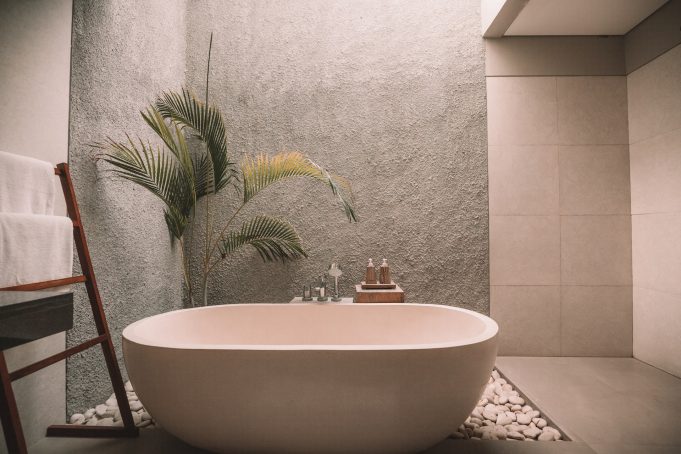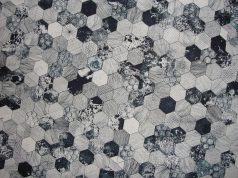Your plumbing system is the arteries of your home and, because of that, it’s essential to take proper care of it so it lasts longer. Regularly cleaning your bathtub and keeping the drains unclogged and running freely will help prevent damages, from slippery or spotty surfaces to shower leaks and clogs. Besides that, having these issues can result in considerable expenses if they’re left unattended.
One of the biggest enemies of your bathtub drains are chemical detergents. While they can be a convenient and fast solution to stubborn stains, they aren’t the most efficient method to use.
The Disadvantages of Chemical-Based Products
What the cleaning method of using chemical-based products lacks in difficulty, it compensates in health risks and drain blockages. A few things to consider before using chemical cleaners include:
- They are highly caustic and corrosive to the drainage pipes.
- They can only dissolve some sources of clogs, for example, hair.
- Shallow blockages can go deeper into the plumbing system and become even more severe.
- These types of harsh chemicals are very harmful to the health of both humans and pets.
Your bathtub should be a place for relaxation and have the potential to improve not only your mental but also your physical health. When it comes to maintaining and cleaning it properly, plumbing experts recommend avoiding using chemical-based products.
Types of Harmful Cleaning and Beauty Products to Avoid in the Bathtub
#1 Lye-based Detergents and Beauty Products
Unfortunately, many cleaning and beauty products are lye-based. The label may promise benefits such as mild skin because of balancing formulas that include sodium hydroxide (NaOH). Usually, this is a diluted solution that doesn’t cause severe skin irritations if it isn’t used regularly, but long-term lye use can be detrimental to your skin.
This ingredient is often used in bath products to formulate efficient cleaning chemicals for spotless tiles. It’s also a handy ingredient for dealing with clogged drains. However, while this’s useful for shallow clogs, lye-based cleaners don’t dissolve grease and can build up in the drainage pipes.
Besides that, the lye-based solutions generate heat when mixed with water, and you can literally melt the clog and the plastic pipes. Additionally, their environmental impact shouldn’t be overlooked as well. Once they enter the water waste system, lye-based products cause huge ecological havoc.
#2 Sulfuric Acid
Sulfuric acid is another bath cleaning ingredient that can be found in heavy-duty formulas of clog removing products.
Harsh clog cleaners mostly dislodge massive balls of flowing trash. However, these chemicals not only react with the clog but also erode the drainage pipes. Besides that, because of their formulas, they’re also extremely harmful to human health if swallowed or inhaled.
#3 Phosphates
Even though phosphates are known to be an excellent cleaner and water softener ingredient, the drain and pipes aren’t the ideal places to use them. When these chemicals come in contact with the drain or pipe walls, they cause rapid growth of algae and pollute the water supply systems and world oceans.
To prevent limescale build up on bath fixtures, it’s best to install a water softener.
#4 Petroleum-Based Detergents
Cleaners that contain petroleum should be kept out of the bath drains. Not only is this ingredient a limited resource in nature, but when it enters the waste system or septic tank, it pollutes the environment.
#5 Bleach
If you want to maintain your drainage pipes in good condition, avoid pouring bleach down the bath drain. It may be known as a powerful cleaner, but it usually causes more harm than good.
Even though liquid solutions made of bleach and ammonia, or bleach and white vinegar form powerful cleaners, it doesn’t necessarily mean they are good for your plumbing system. More often than not, it’s actually the opposite. The chemical reaction that happens releases harmful fumes that irritate your lungs and can cause respiratory issues. Besides that, pouring bleach and ammonia solution into the drain, even only one time, can lead them to react with other materials in the pipes and further complicate the clog.
If your home has a septic system, any bleach poured down the drain can kill the beneficial bacteria that help dissolve the septic waste. This can cause it to fail to drain your waste effectively and shorten the lifespan of your septic system.
#6 Oil-based Soaps
Many people assume that because soap is a liquid, it won’t cause problems with the drain and pipes. In reality, soap talc, wax and oils react with hard mineral deposits and form soap scum. This leaves a hard residue on pipes, which can further clog the drains and pipes if it isn’t treated on time.
To avoid buildup on your pipe walls, opt for natural cleaning mixtures made of soda, salt and vinegar. For the best cleaning results, pour a solution of this household cleaner once a week to dissolve minor clogs and eliminate unpleasant smells.
The Right Tools to Maintain Your Bath
A clogged shower or bath drain can be frustrating and pose an emergency problem, but don’t be tempted to act rashly and immediately reach for chemical-based products. Harsh chemical solutions may promise fast cleaning results for your drains, but a manual repair is a more reliable and safe option to go with.
If dirt, debris and waste often cause blockages in your pipes, invest in a quality plunger or a drain snake for clogs that are deeper into the plumbing system. Another efficient and affordable method to protect your bath drains is to place small metal, mesh or silicone sieves over the plugholes.
Besides that, make regular inspections of the bath drains and, if necessary, hire a licensed plumber to perform routine maintenance on your drainage pipes.
Takeaway
You don’t need a chemistry degree to know which products you shouldn’t use to treat your bath drain and pipes for clogs. Besides posing the risk of further complicating the bath blockage issue, they are also highly harmful to your and your family’s health and wreak havoc on the environment.
Before you buy any products that you plan on using in your bath, make it a habit to read the labels carefully and, if possible, avoid using chemical cleaners as a whole. There are many safer and arguably more efficient alternative methods you can use to help you deal with the problem promptly without impacting the environment negatively.














